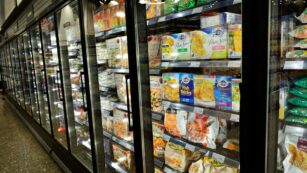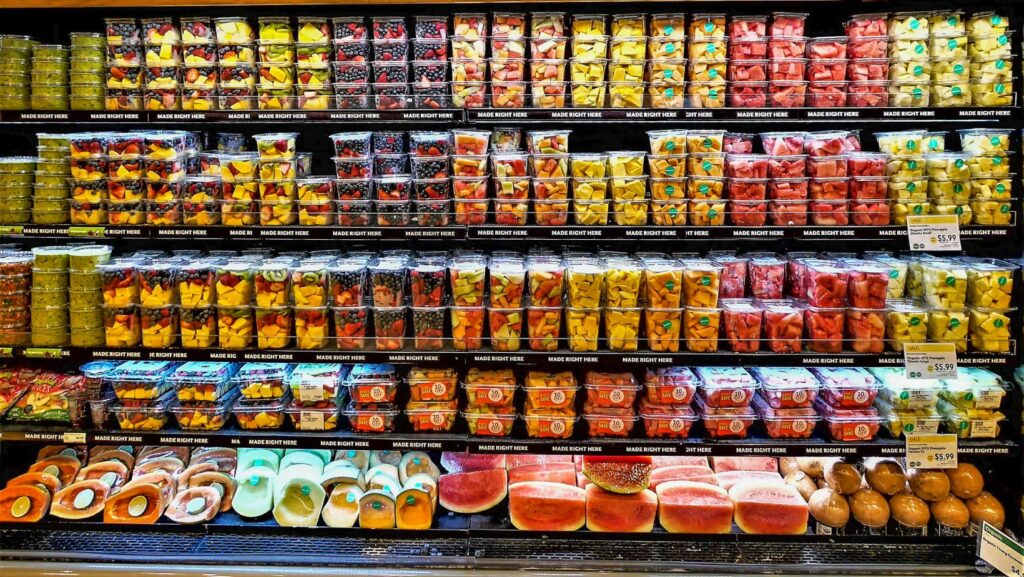The grocery market is constantly evolving, shaped by consumer preferences, technological advancements, and global events. As shoppers become more health-conscious and environmentally aware, retailers are adapting to meet these changing demands. From organic produce to plant-based products, the landscape of grocery shopping is shifting dramatically.
Grocery Market Trends
 Grocery market trends reflect significant shifts in consumer behavior and industry practices. These trends include:
Grocery market trends reflect significant shifts in consumer behavior and industry practices. These trends include:
-
Health-Conscious Choices: Consumers increasingly purchase organic, gluten-free, and plant-based products. This shift arises from heightened awareness of nutrition and wellness.
-
Sustainability Focus: Environmentally friendly packaging and sustainable sourcing gain traction. Brands that prioritize eco-friendly products attract conscientious shoppers.
-
Digital Transformation: Online grocery shopping and mobile apps surge in popularity. Convenience drives this trend as customers seek seamless shopping experiences.
-
Local Sourcing: Support for local farmers and producers increases. This trend fosters community relationships and appeals to consumers looking for freshness and quality.
-
Personalization: Retailers use data analytics to tailor offerings. Personalized recommendations enhance customer satisfaction and loyalty.
-
Subscription Services: Meal kits and grocery delivery subscriptions rise in demand. These services provide convenience and cater to busy lifestyles.
-
Inflation Awareness: Consumers become more budget-conscious amid rising prices. They often seek promotional offers and bulk purchasing options.
-
Ethical Consumption: Social responsibility plays a crucial role. Consumers prefer brands that support social and ethical initiatives.
Technology In The Grocery Sector
E-Commerce Growth, Automation And AI Integration
 E-commerce in the grocery market has surged, with online grocery sales projected to exceed $100 billion by 2025, accounting for over 20% of total grocery sales. Consumers prefer the convenience of delivery services and click-and-collect options. Mobile apps enhance user experience, allowing personalized discounts and streamlined shopping. Retailers adopting robust e-commerce platforms ensure they keep pace with evolving consumer demands and preferences.
E-commerce in the grocery market has surged, with online grocery sales projected to exceed $100 billion by 2025, accounting for over 20% of total grocery sales. Consumers prefer the convenience of delivery services and click-and-collect options. Mobile apps enhance user experience, allowing personalized discounts and streamlined shopping. Retailers adopting robust e-commerce platforms ensure they keep pace with evolving consumer demands and preferences.
Automation and artificial intelligence (AI) transform grocery operations. Automated inventory management systems track stock levels in real-time, reducing shortages by up to 30%. AI-powered data analytics personalize marketing strategies, boosting customer engagement. Additionally, automated checkout systems speed up the shopping process, enhancing customer satisfaction. Grocery retailers leveraging these technologies improve operational efficiency and respond more effectively to market changes.
Consumer Behavior Shifts
 Consumer behavior in the grocery market is undergoing significant shifts driven by various factors. Increased health awareness motivates consumers to seek out organic, gluten-free, and plant-based products. Approximately 60% of shoppers express a preference for healthier grocery options. Retailers can capitalize on this trend by providing wellness-focused promotions and hosting in-store tastings or cooking demonstrations.
Consumer behavior in the grocery market is undergoing significant shifts driven by various factors. Increased health awareness motivates consumers to seek out organic, gluten-free, and plant-based products. Approximately 60% of shoppers express a preference for healthier grocery options. Retailers can capitalize on this trend by providing wellness-focused promotions and hosting in-store tastings or cooking demonstrations.
Sustainability concerns further influence purchasing decisions. A notable 73% of consumers are willing to pay a premium for eco-friendly products. Shoppers increasingly prefer brands demonstrating commitment to environmental initiatives through sustainable sourcing and eco-friendly packaging. Retailers adopting such green practices enhance brand loyalty and attract ethically minded consumers.
The growing trend towards online shopping reflects the demand for convenience and efficiency. E-commerce in the grocery sector predicts online sales to surpass $100 billion by 2025, indicating that over 20% of total grocery sales will occur online. Consumers prioritize delivery services and click-and-collect options, as mobile apps provide personalized discounts, enhancing the overall shopping experience.
Budget-conscious behavior is also apparent amid rising inflation. Consumers seek promotional offers and bulk purchasing options, demonstrating a shift towards more strategic shopping habits. Additionally, ethical consumption gains traction, with shoppers favoring brands engaged in social and ethical initiatives. This evolving landscape demands that retailers align with customer preferences through innovative strategies and sustainable practices to remain competitive in the grocery market.
Future Predictions For Grocery Markets
 The grocery market is poised for significant changes in the coming years. As consumers continue to prioritize health and sustainability, retailers must adapt their offerings to align with these values. The rise of technology will further reshape the shopping experience, making convenience a top priority.
The grocery market is poised for significant changes in the coming years. As consumers continue to prioritize health and sustainability, retailers must adapt their offerings to align with these values. The rise of technology will further reshape the shopping experience, making convenience a top priority.
Anticipating shifts in consumer behavior will be crucial for success. Retailers that embrace innovation and sustainability will likely build stronger connections with their customers. By staying ahead of trends and responding to evolving preferences, the grocery industry can thrive in a competitive landscape.

